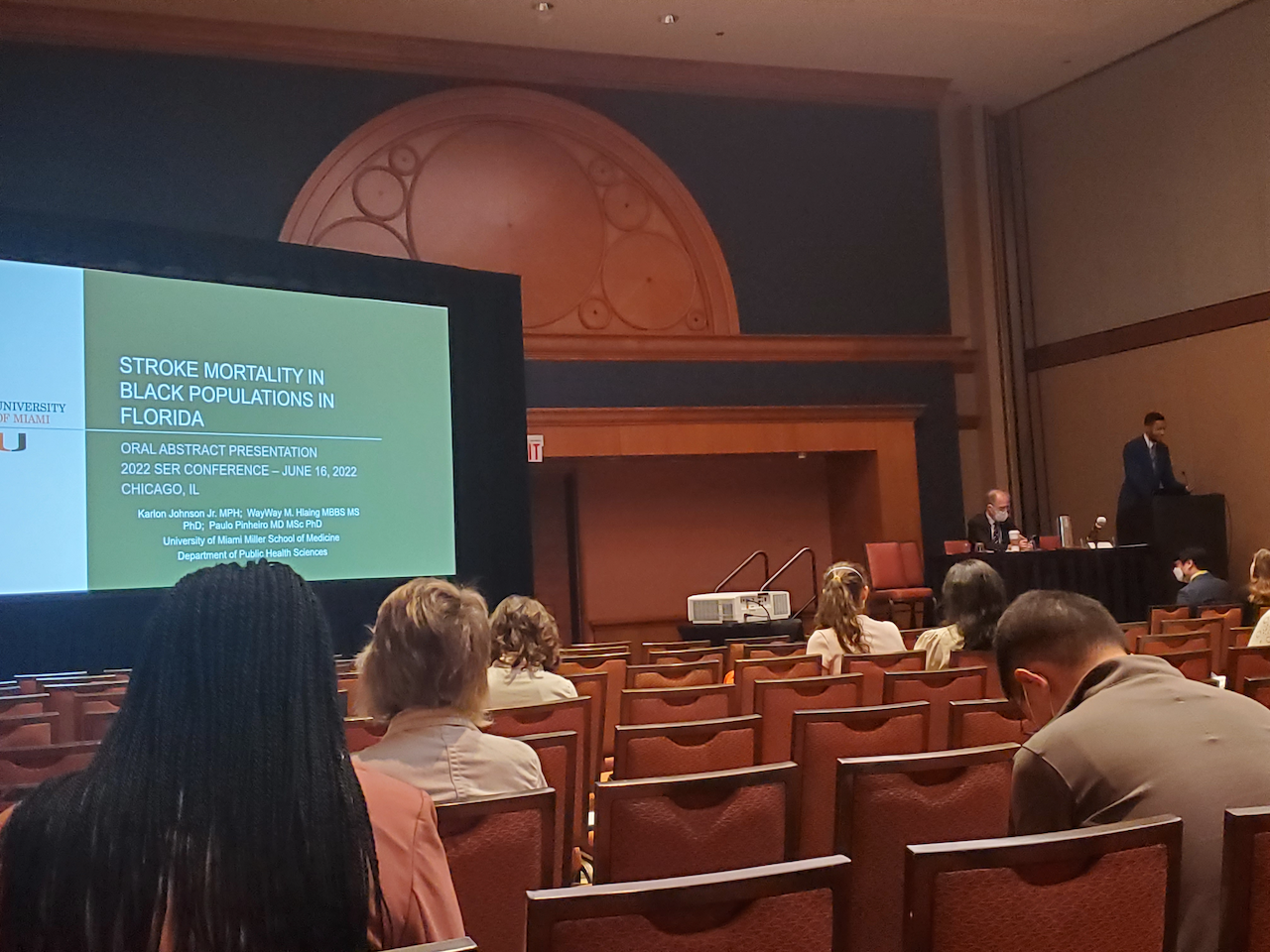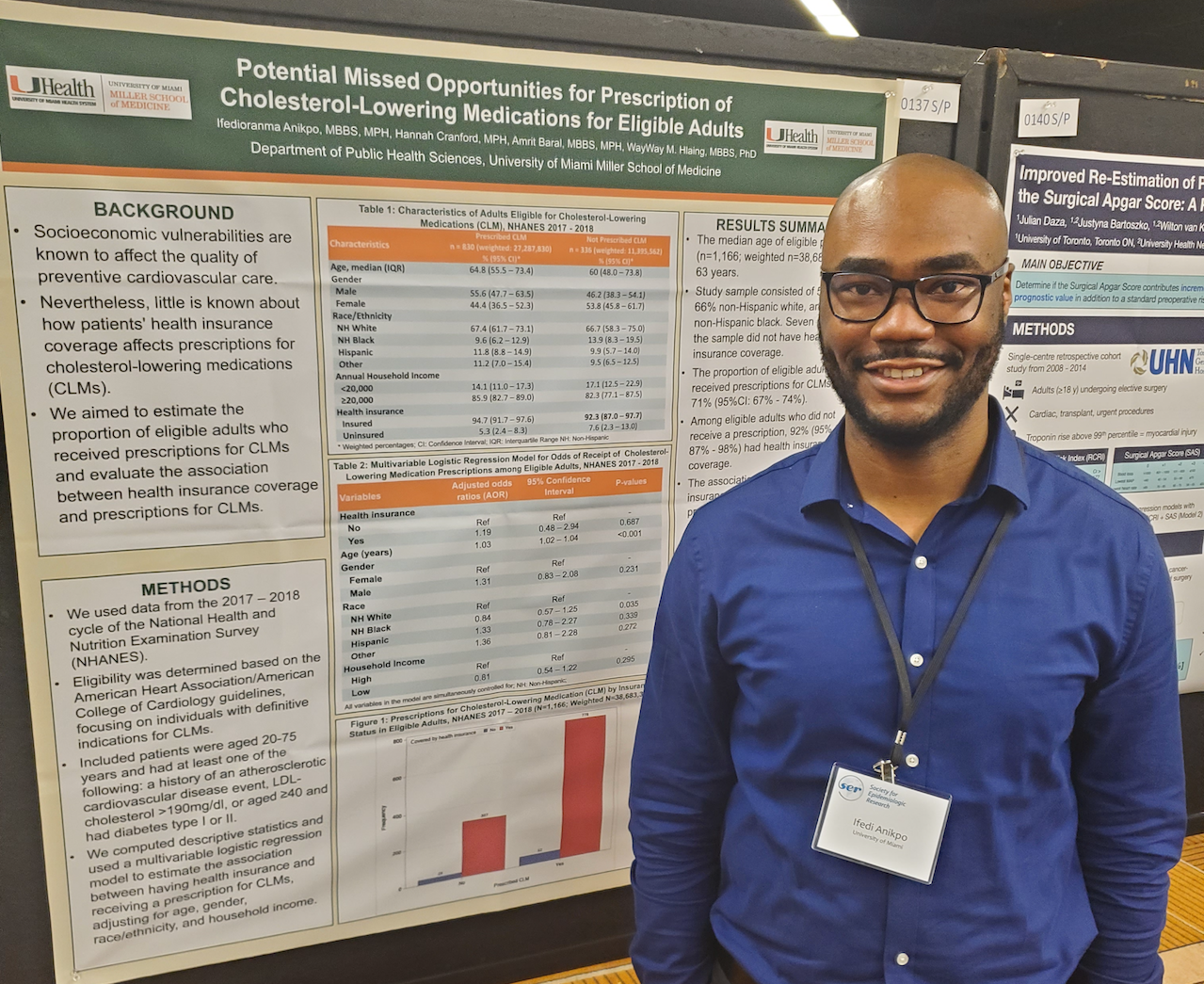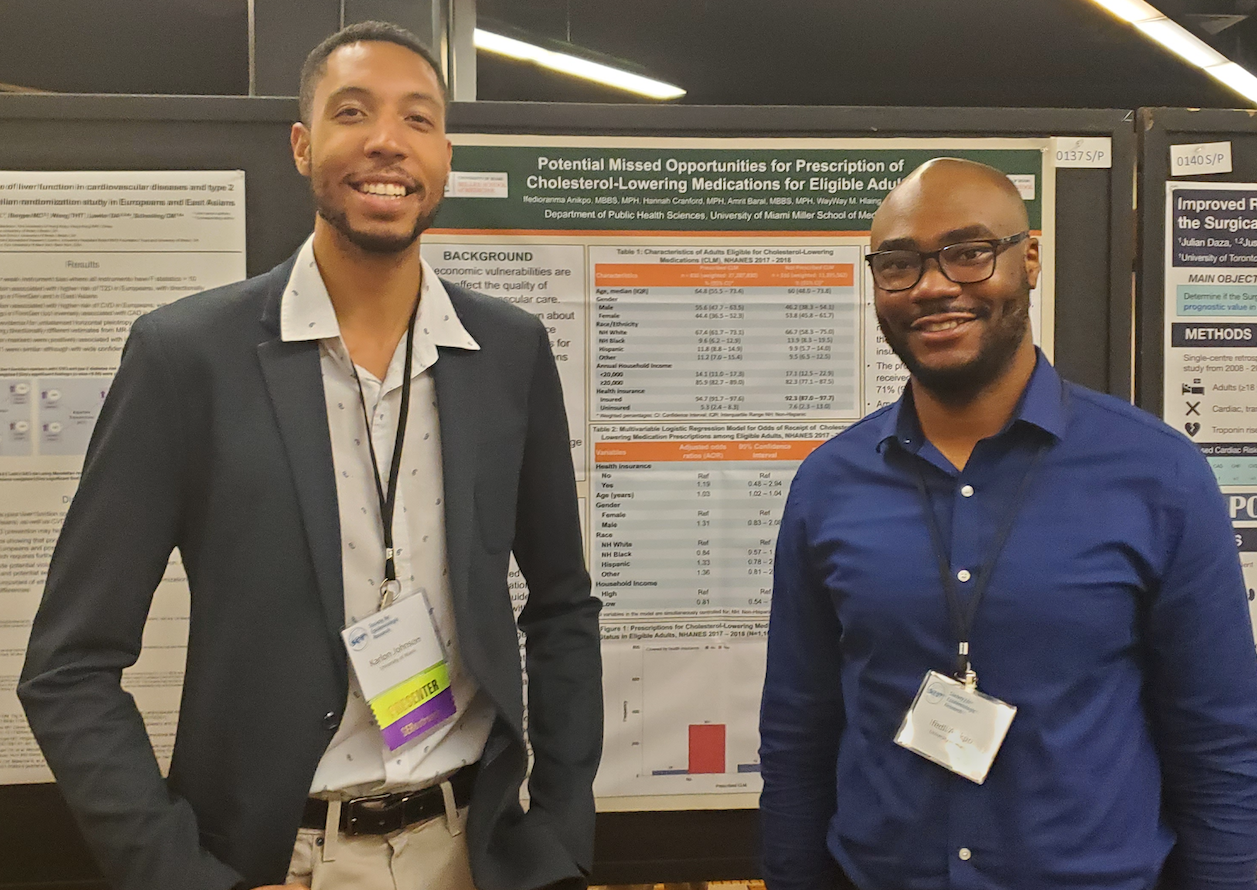The Society for Epidemiologic Research (SER) was established in 1968 to foster epidemiologic research, SER is the oldest and largest general epidemiology society in North America. Their mission is to keep epidemiologists at the vanguard of scientific developments (Society for Epidemiologic Research).
Every June, SER hosts its annual conference with the goal of bringing epidemiologists together – from all pathways – where they discuss cutting-edge epidemiologic research.
Karlon H. Johnson Jr., MPH, and Ifedi Anikpo, MBBS, MPH, both PhD students of Epidemiology, took part in SER’s annual meeting in Chicago, IL from June 14 - 17, 2022.
With the help of Dr. Paulo Pinheiro, MS, Research Associate Professor of Epidemiology, and Dr. Hlaing, Karlon presented his research "Stroke Mortality in Black Populations in Florida" during the Social Vulnerabilities and Cardiovascular Health and Disease panel. His study examined if there were any differences in stroke mortality among Florida non-Hispanic Black subpopulations from 2017 to 2020. The subpopulations were categorized by nativity: US-Born, West Indies-Born, and Haiti-Born.
Hypothesis
It was hypothesized that stroke mortality rates would differ between the subpopulations because of the known differences in stroke risk factor prevalence between the different groups.
Findings
Their study found that there was little variation in stroke mortality among the groups. All three subpopulations had similarly high stroke mortality rates when compared to non-Hispanic White Florida adults.
After Karlon’s presentation, the audience provided insightful comments as well as inquiries about the project's future course. “Feedback included the potential of 1) doing a Hispanic subpopulation analysis and 2) further analyzing more non-Hispanic Black subpopulations from the West Indies-Born group (i.e., Jamaican, Trinidadian, Bajan, Antiguan, etc.),” explained Karlon.

Karlon H. Johnson Jr., MPH, presenting Stroke Mortality in Black Populations in Florida
“This conference provides me with helpful insight as I continue to research stroke outcomes in minority populations. I look forward to contributing more research that can be shared across the DPHS,” he stated.
For Ifedi, the 2022 SER Conference was his 4th one. “My faculty mentor, Dr. Hlaing, was very supportive throughout the process. When I shared the study idea with her, she encouraged me to go ahead with the project. She provided strategic guidance on the study approach and interpretation of results, helped review my abstract and poster drafts, and sponsored my conference registration and poster printing,” he conveyed.
Ifedi presented his research “Potential Missed Opportunities for Prescription of Cholesterol-Lowering Medications for Eligible Adults” where the goal was to examine how health insurance coverage affects the quality of preventive cardiovascular care for people at risk of heart disease. They used data from the National Health and Nutrition Examination Survey (NHANES), in order to examine U.S. adults eligible for receiving cholesterol-lowering medications (CLMs) for cardiovascular disease prevention based on current guidelines.
Hypothesis
It was hypothesized that the receipt of prescriptions for CLMs among eligible adults would be influenced by their health insurance coverage status.
Findings
Their analysis showed that CLMs were markedly under-prescribed for eligible adults, and patients' health insurance coverage did not significantly affect the prescribing of CLMs after accounting for other important variables. The findings indicate that the under-prescription of CLMs in this population may be independent of health insurance status. Thus, there is a need to identify and address barriers to prescribing CLMs for patients at high risk of cardiovascular disease.

Ifedi Anikpo and his research poster Potential Missed Opportunities for Prescription of Cholesterol-Lowering Medications for Eligible Adults
“SER conferences are always great learning experiences for me, and it was exciting to contribute to the variety of innovative research studies highlighted at this year's meeting,” said Ifedi.
“I think it is great that the department was represented at this conference, and it is probably an indication that the work we do as graduate students in the department is relevant,” he added.
Written by Deycha Torres Hernández
Published on August 22, 2022







